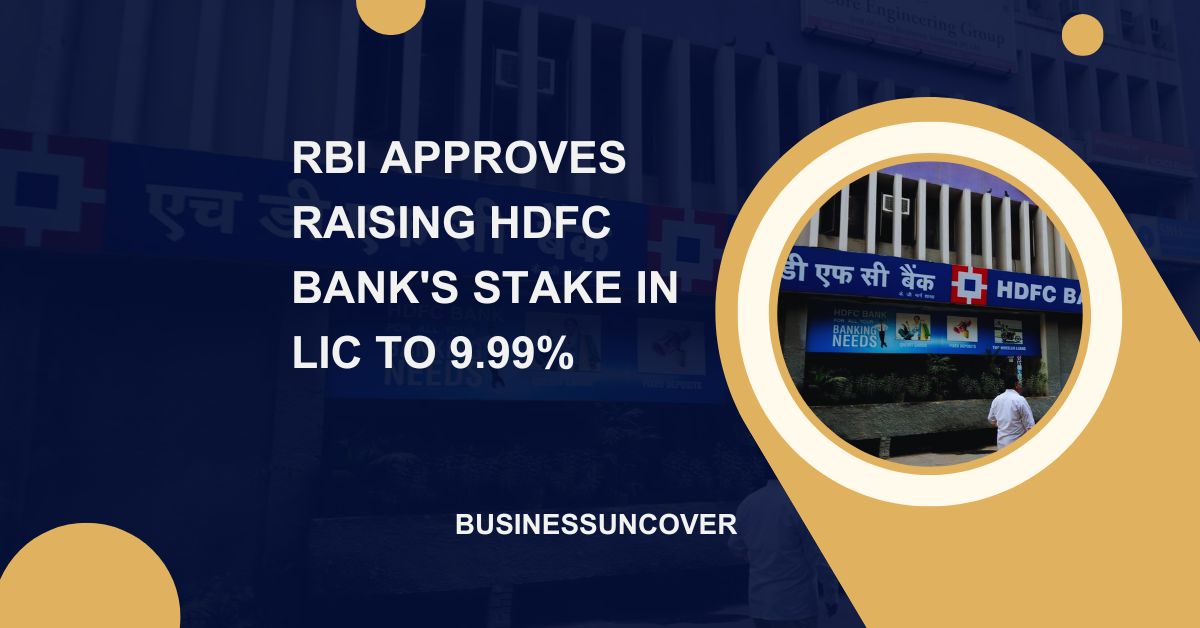The Reserve Bank of India (RBI) has approved the Life Insurance Corp. of India (LIC) to purchase an additional 4.8% stake in the nation’s largest private sector lender, HDFC Bank announced on Thursday. As of right now, LIC owns 5.19% of HDFC Bank.
As per HDFC Bank’s stock exchange filing, LIC has been advised by the RBI to finalize the purchase of the extra HDFC Bank shares within a year. But at all times, LIC has to make sure that its total stake in the bank doesn’t surpass 9.99% of the bank’s paid-up share capital or voting rights.
A number of regulations, including the Banking Regulation Act of 1949, the Foreign Exchange Management Act of 1999, the RBI’s Master Direction and Guidelines on Acquisition and Holding of Shares or Voting Rights in Banking Companies, and rules published by the Securities and Exchange Board of India (SEBI), must be followed by LIC in order for the central bank to approve it.
According to RBI regulations, any entity aiming to acquire a significant stake in a bank—defined as holding 5% or more of the paid-up share capital or voting rights—must secure prior approval from the regulator. This action mirrors a previous approval in May last year, permitting SBI Funds Management Ltd to acquire a stake of up to 9.99% in HDFC Bank.
Notably, entities designated as fit and proper in the banking sector are allowed to hold up to 5% without the RBI’s approval. Because of its post-merger stake exceeding 5%, LIC sought regulatory approval for any subsequent increase in stake beyond this threshold.
HDFC Bank’s shareholders should feel relieved by this announcement, especially in light of the recent sell-off that brought the company’s shares dangerously close to 52-week lows. Analysts surmise that foreign investors’ responses to a proposal from the Securities and Exchange Board of India (SEBI) concerning foreign portfolio investors may have set off the sell-off. HDFC Bank did, however, previously clarify that there is no proof connecting the selling activity of foreign portfolio investors to the most recent SEBI guidelines.






